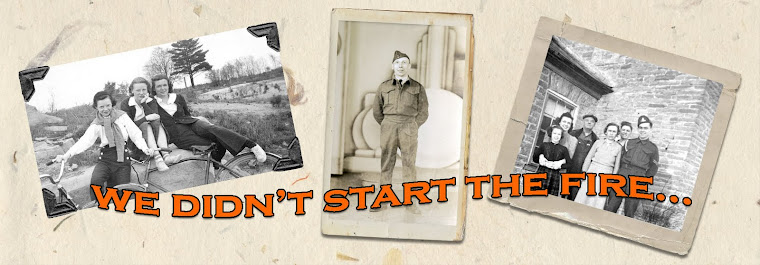Over the holidays I usually make appointments with my doctor, hair dresser, dentist, and optometrist. It's a time to get healthy, regenerate, and share conversation with the health professionals who have been seeing me since I was a kid.
This year, however, the conversation was not about family, holiday plans, and life in general; rather, appointments consisted of me explaining public history, my MA program, and my future career options. When I described public history to my dentist and the kinds of jobs that I could possibly have once I graduate, he responded, "I didn't even know those kinds of jobs existed." Similarly, while answering the same questions from my doctor, he said, "You're speaking Greek to me."
I recognized early on that most people didn't or wouldn't know much about public history but a simple explanation seemed to yield an understanding nod and smile. I was quite surprised, however, to hear the responses of so many supposedly well-educated, socially aware Canadians.
This got me thinking. What is the point of public history if the 'public', this kind of history's namesake, doesn't even realize its significance. There is, indeed, public interest in history - historical novels, movies, and television shows are more popular than ever before. Perhaps, as public historians, we need to be more concerned with the public rather than the history. My digital history course is obviously helping to foster this attitude.
How cool would it be if museums had temporary exhibitions for which the subjects were based entirely on public interest? Museum administrators could poll their communities to find out what topics would draw the most amount of visitors. This would probably lead to a type of history less interesting to most museum administrators and historians. A less 'academic' type of history. Does public support automatically tarnish historic validity?
I wonder if it is possible to bridge the gap between what the public wants and what historians want. I'm not entirely sure. I do know, however, that as I continue to find my way as a public historian, I am leaning more toward the attitude that supports and favours a public friendly history.

1 comment:
I've heard the same debate among community theatre groups locally. They walk a fine line between staging plays that audiences want to see (more conservative, familiar plays like comedies, light dramas, musicals) and the darker, edgier, more contemporary plays that actors want to do but that may not bring in the crowds. Most groups try a mix of both in their season but often struggle to make the edgier ones pay.
Post a Comment